Summer 2023 Reading Recommendations
Lauren Hays
Last May, I shared summer reading recommendations. It was fun to write and I want to make an annual post. Below is this year’s list.
Similar to last year, I tried to select books from different genres to appeal to a wide audience. Only one book is fiction and only one book is directly about libraries. Each book has been useful for me.
Here are my summer reading recommendations for 2023:
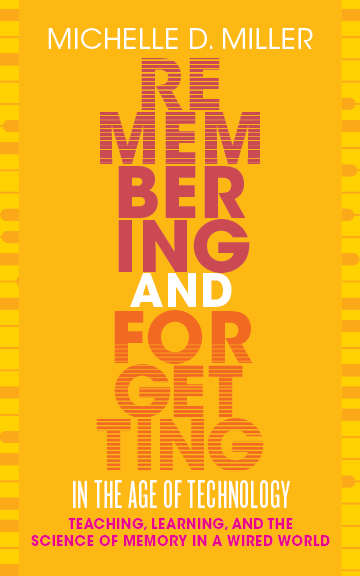
Remembering and Forgetting in the Age of Technology by Michelle D. Miller
Book Description:
“Human minds are made of memories, and today those memories have competition. Biological memory capacities are being supplanted, or at least supplemented, by digital ones, as we rely on recording—phone cameras, digital video, speech-to-text—to capture information we’ll need in the future and then rely on those stored recordings to know what happened in the past. Search engines have taken over not only traditional reference materials but also the knowledge base that used to be encoded in our own brains. Google remembers, so we don’t have to. And when we don’t have to, we no longer can. Or can we?
Remembering and Forgetting in the Age of Technology offers concise, nontechnical explanations of major principles of memory and attention—concepts that all teachers should know and that can inform how technology is used in their classes. Teachers will come away with a new appreciation of the importance of memory for learning, useful ideas for handling and discussing technology with their students, and an understanding of how memory is changing in our technology-saturated world.”
I shared about this book in a previous post and only have good things to say about it. If you are curious about memory read this book!
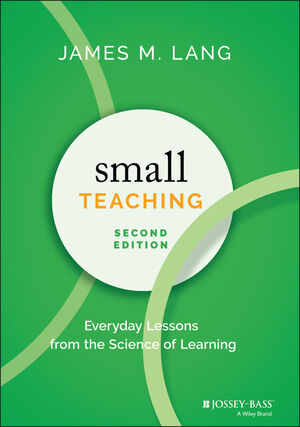
Small Teaching: Everyday Lessons from the Science of Learning by James Lang
Book Description:
“Research into how we learn can help facilitate better student learning―if we know how to apply it. Small Teaching fills the gap in higher education literature between the primary research in cognitive theory and the classroom environment. In this book, James Lang presents a strategy for improving student learning with a series of small but powerful changes that make a big difference―many of which can be put into practice in a single class period. These are simple interventions that can be integrated into pre-existing techniques, along with clear descriptions of how to do so. Inside, you’ll find brief classroom or online learning activities, one-time interventions, and small modifications in course design or student communication. These small tweaks will bring your classroom into alignment with the latest evidence in cognitive research.
Each chapter introduces a basic concept in cognitive research that has implications for classroom teaching, explains the rationale for offering it within a specific time period in a typical class, and then provides concrete examples of how this intervention has been used or could be used by faculty in a variety of disciplines. The second edition features revised and updated content including a newly authored preface, new examples and techniques, updated research, and updated resources.
- How can you make small tweaks to your teaching to bring the latest cognitive science into the classroom?
- How can you help students become good at retrieving knowledge from memory?
- How does making predictions now help us learn in the future?
- How can you build community in the classroom?
Higher education faculty and administrators, as well as K-12 teachers and teacher trainers, will love the easy-to-implement, evidence-based techniques in Small Teaching.”
This book changed my approach to teaching. I started focusing less on the entire instruction session, and instead, refocused on the small things I could implement to help students learn.
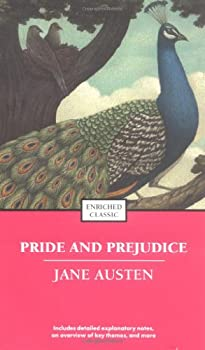
Pride and Prejudice by Jane Austen
Book Description:
“Set in a small English village during 1812, this classic novel is one of the greatest love stories ever told! A poor country squire is trying to find husbands for his five daughters. When one of them, Elizabeth, meets rich Mr. Darcy at a dance, they don’t find much in common. But during the next few months, they overcome their differences and fall in love.”
I first read this book probably two decades ago and decided to reread it this year. It was enjoyable revisiting a well-known classic and noticing new things that I had forgotten.
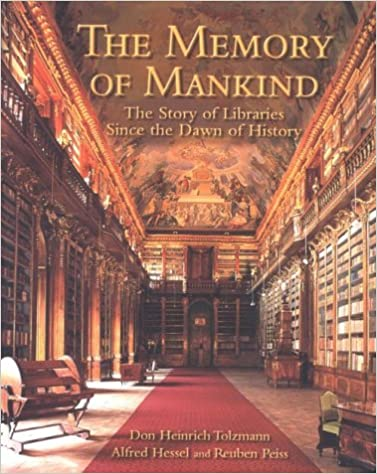
The Memory of Mankind: The Story of Libraries Since the Dawn of History by Don Heinrich Tolzmann, Alfred Hessel, and Reuben Peiss
Book Description:
“The Memory of Mankind is an illustrated history of the unique role libraries have played in the history of civilization.
Don Heinrich Tolzmann took the classic German-language work The History of Libraries by Alfred Hessel (published 1925 and translated by Reuben Peiss in 1950) and expanded it with additional text to cover the important past 75 years.
Tolzmann also completely rewrote the first chapter due to the discovery of many clay tablet libraries in the ancient Middle East, thus expanding our library history knowledge back 5,000 years.”
I really enjoy reading about the history of libraries and found this book fascinating.
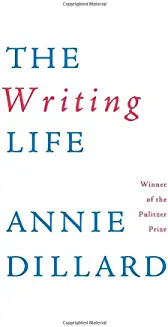
The Writing Life by Annie Dillard
Book Description:
“In these short essays, Annie Dillard—the author of Pilgrim at Tinker Creek and An American Childhood—illuminates the dedication, absurdity, and daring that characterize the existence of a writer. A moving account of Dillard’s own experiences while writing her works, The Writing Life offers deep insight into one of the most mysterious professions.”
This book was beautiful and contains one of my favorite quotes “How we spend our days is of course how we spend our lives. What we do with this hour and that one is what we are doing.”
Lauren Hays
Lauren Hays, PhD, is an Assistant Professor of Instructional Technology at the University of Central Missouri, and a frequent presenter and interviewer on topics related to libraries and librarianship. Please read Lauren’s other posts relevant to special librarians. And take a look at Lucidea’s powerful integrated library systems, SydneyEnterprise, and GeniePlus, used daily by innovative special librarians in libraries of all types, sizes and budgets.
Never miss another post. Subscribe today!
Similar Posts
Teaching about AI in the Workplace
Suggestions for special librarians from Claude on how to foster cross-generational AI learning communities in the workplace.
Keeping up with AI…
Resources for staying current on the quickly changing AI landscape from a library expert.
Interview with Lesley Farmer about SLA’s Information Outlook
Interview about the rebirth of SLA’s Information Outlook as a quarterly online publication with interview with Professor Lesley Farmer
Ways I Have Been Using Generative AI
Generative AI can be used in many ways as part of a typical workflow; examples and thoughts about what the future holds




Leave a Comment
Comments are reviewed and must adhere to our comments policy.
0 Comments